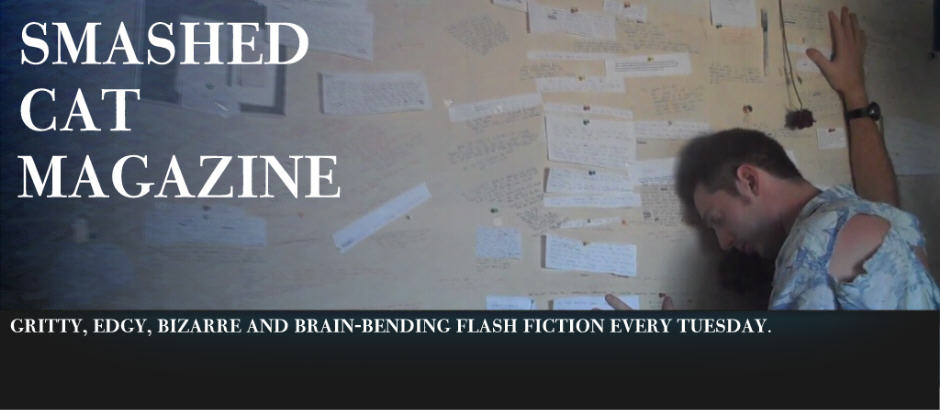Posted by E.S. Wynn
Those with Faith, Their Reward (A Triptych)
By Jude Conlee
I went into the back room for what waited for me. Something there always waited for me. Never for you. It does not come for you because it senses inside you the impurity like necrotic flesh in your brain. But I, faithful with fewer such things in my brain and those few being worked at, will get what I will get. Never you, though. Never you, not ever. I get the things allotted the faithful, and you are allotted that which you can find outside the spaces of true reward.
But I. I will always find something if I go to that room, and sometimes it is tiny, fills the room itself. Sometimes I can hold it in my hand and sometimes it holds me in its own. Sometimes it fills me so I cannot see what is real and what is my reward. Usually it comes in the boxes. The boxes are made for that purpose; I set them there for that reason. And sometimes the rewards are words on scraps of paper, which I store in my pockets and treasure as Psalmic poetry. Always, though. Always a reward.
I work hard and then I work harder. There is nothing to do but to constantly do as you must. Do as you are told. Do what that which is greater than you tells you do to. Work with no expectation of reward. Only the faithfulest servants receive so much as praise. But I am faithful and receive reward. Always. Always.
Imagine a tree of life with three tiers,
little fruit but longwide branches
Life, and the Knowledge of Life and Death
it is the way humanity must damn itself
but it is considered glory, only when
we close our eyes
but we paint it for our cathedrals that
die and die but the holy live on
in eye-gouged spaces for worship is blind
we worship the gods that are not buried in whose burial fields lie no headstones
and whose orders are carried in strange glyph and whose orders are all there are
the deathless gods, above all others, all others are dead through metaphor nonexistence
the space allocated their burial is still, windless; sometimes one imagines a stirring sound
no man can bear it to stay very long, but it is never a place of exile for we know what honor is
we honor our men and we worship our gods and we never sacrilege their empty grounds
worships supplant scripture but proverbs remain, remnants of when words sufficed as faith
faith must be accompanied by it; war is one and a warship becomes worship, we are there
we are always there when what must be committed is done; we are only of action of only ever
They of the vineless branches,
drink and thou shalt not thirst,
eat and thou shalt not hunger,
toil and pray and grind thyselves to nothing,
thy reward is on this earth, but meager;
thy reward is in the after-all
and it flashes and stings and
excruciates and your
martyrdom is mundane in its sight
You are the faithless, so don’t bother searching the boxes for a gift-wrapped present with your name on it. There are ones given a faithful eyeless servant, but a godless many-eyed worshipper of the now and known gets nothing. You were always so, like a kid at Christmas, caught by shiny wrappers but always in regards to what they hid. I knew only patience and admiration for the package itself.
Crammed in spaces of paper I find what my god and gods dictate and all I can know is what they have told me, and it says eviscerate my mind and find what they take out and put back into jars, and if you wish to freeze in what is our makers’ cosmic sight, you will choose, you will go on as you always have but I choose to burn for burning is of the gods and I shall never die, I shall sear inside for always and I am becoming that, for today in the back room there was fire in the boxes and they burned not but I burned with them, and you saw and screamed but I laughed in holy joy and it shall be so again, it shall someday be so for always and ever.
My rewards will cease one day and I will rejoice, for my rooms overflow with both trinket and treasure, and I have swallowed all the praise, and my innards are scraped and emptied by both my servitude and its reward. I shall burn, as our gods burn, and if I am the mightiest in faith, I may be buried where the gods were never buried.
- - -
Jude Conlee puts words together and is fascinated by things like human minds, the universe, and other irregular subjects. The intersection of these two facts often leads to the creation of fiction and poetry, which has appeared in several publications including The Fast-Forward Festival, Otoliths, and The Inflectionist Review.













